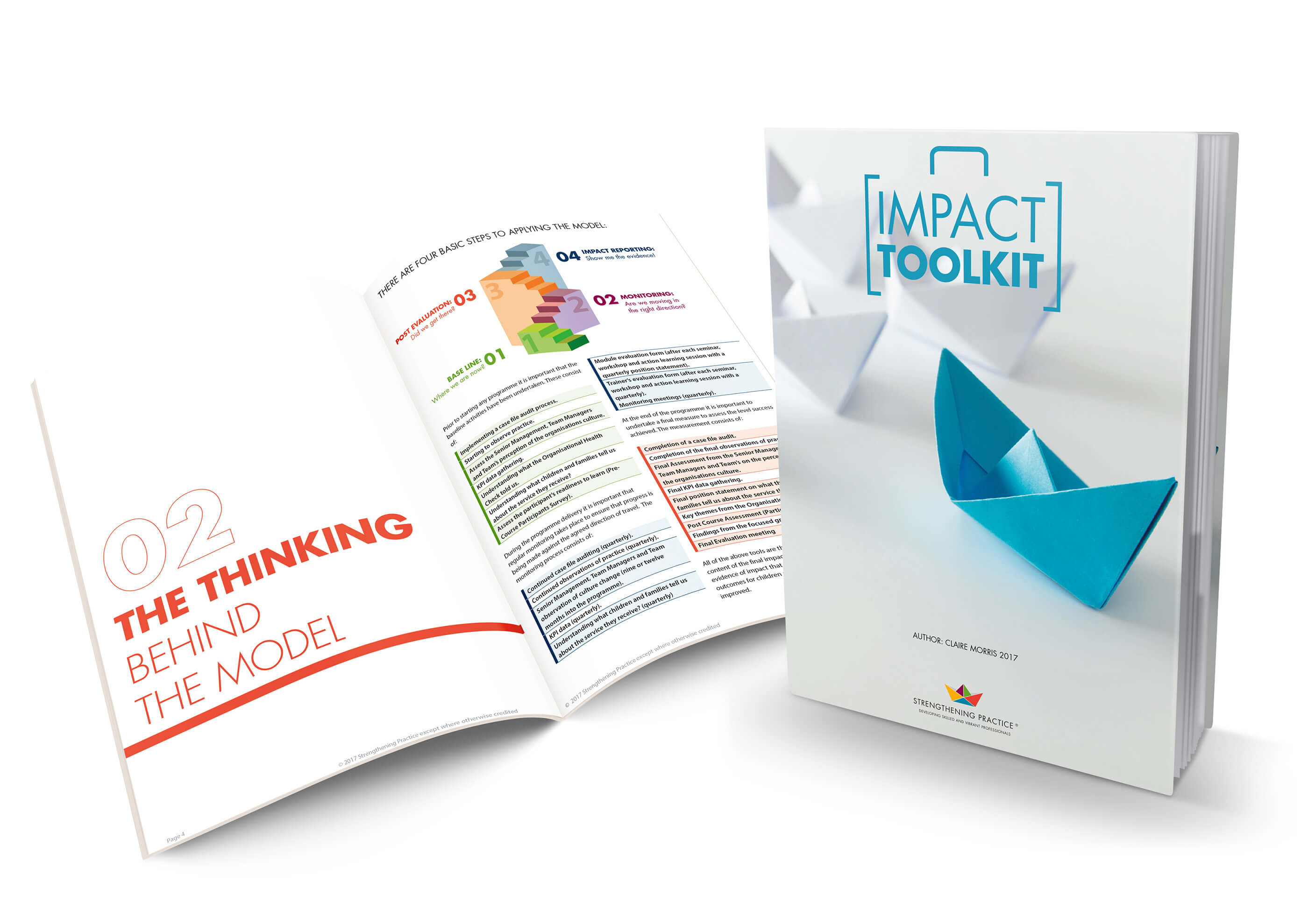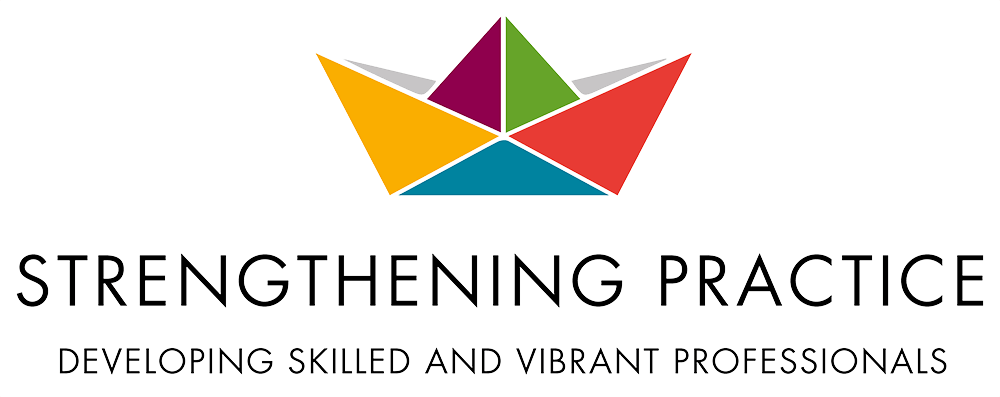
Measuring the impact and quality of our training programmes
Continuous Improvement – Our Quality Management Strategy
Strengthening Practice (SP) is a BASW-accredited CPD provider, independently audited for quality, accuracy, and relevance. SP upholds a robust Quality Management Strategy, which ensures high standards in programme design and delivery through established policies, practices, and SMART objectives. These are clearly communicated to all staff and stakeholders.
Continuous improvement is achieved via a structured monitoring, evaluation, and action cycle. Training resources—including workbooks, presentations, exercises, and tools—are under constant review and updated as needed to reflect changes in legislation, guidance, or practice. Additionally, formal reviews of all training modules are conducted annually to maintain accuracy and relevance.
Feedback from learners plays a vital role in refining training approaches. Suggestions for improvement are promptly integrated to enhance outcomes and address stakeholder needs. SP consults with clients in advance to tailor content and delivery methods to specific organisational preferences, promoting effective learning.
Training materials are of high quality, using consistent branding and multimedia elements such as text, imagery, video, and sound. These are distributed both electronically and in professionally designed hard copies. For flexibility, especially in the foundational course, materials are provided in ring binders, allowing easy updates.
SP invites commissioning councils to request customisation during the planning phase, enabling council-specific content to be incorporated into workshops via PowerPoints, tools, handouts, and exercises.
SP draws on best practice sources, including the Department for Education, Research in Practice, and Tony Morrison’s licensed Supervision materials. It is registered with the Copyright Licensing Agency and the UK Register of Learning Providers.
All trainers and content developers are registered social workers, maintaining CPD requirements. Key contributors are affiliated with Research in Practice, ensuring access to the latest materials and training. SP also subscribes to NSPCC CASPAR updates and monitors government sites for legal changes.
We have our own graphic and print section whose role is to keep the materials current and develop new tools.
Evaluation
Evaluation at Strengthening Practice is grounded in the Kirkpatrick Model, encompassing four levels of impact assessment.
At Level One, participant reactions are gauged through evaluation forms completed after each session. These are compiled into module evaluation reports and discussed with stakeholders, with participant feedback directly informing revisions to materials, teaching methods, and session planning.
Level Two assesses learning via pre- and post-course self-assessments of knowledge, skills, and confidence. These aggregated scores illustrate the impact of the training and are analysed alongside Level One data. Trainers’ evaluations also contribute, providing a comprehensive view of each module’s effectiveness and leading to informed recommendations.
At Level Three, behavioural changes are evaluated using trainer assessments of Action Learning Sets, determining how participants apply learning in practice. These insights shape evaluation reports, inform stakeholder meetings, and guide trainers’ reflective supervision sessions with senior staff, ensuring continued development.
Level Four evaluates results—often the most challenging to measure. We have developed an Impact Toolkit for Local Authorities to effectively evaluate the impact of our programme in line with national performance indicators for social work employers and Ofsted regulated standards for social work practice.
A core method of gathering meaningful feedback involves Action Learning Sets, where participants reflect on how their learning has impacted their work and service users. These reflective narratives, recorded by facilitators, help determine effectiveness and areas for development.
Crucially, evaluation at Strengthening Practice includes both qualitative and quantitative data, culminating in a comprehensive impact model. This model uses a balanced scorecard approach combined with service user narratives, forming a highly robust evidence framework. The final evaluation report provided to clients includes detailed analysis, offering transparent, data-driven insights into programme outcomes and continuous improvement.
The Strengthening Practice
Impact Toolkit

When you commission training, you always need an incredibly detailed view of the impact on your practitioners and organisation – and how this reflects in more helpful and effective work with children and families. Our Impact Toolkit begins at the first commissioning meetings and ends with a six-month follow-up after the completion of your programme – giving you frank and timely feedback so you can address issues as they arise and maximise the positive impact on your organisation and practice.
You’ll know how your staff first react to the training, how effectively they learn and absorb new skills throughout the programme, and how and whether this translates into strengthened practice and positive changes in outcomes for children and families. Implementing a combination of the ADKAR Model and Kirkpatrick’s Evaluation Model and utilising both qualitative and quantitative methods for gathering information, the impact toolkit gives you robust and useful methods for assessing results – from auditing case files to evaluating programmes and courses – and observing and tracking organisational change.
Would your organisation benefit from a clearer view of the impact training is making? Get in touch now and we’ll be happy to help.

